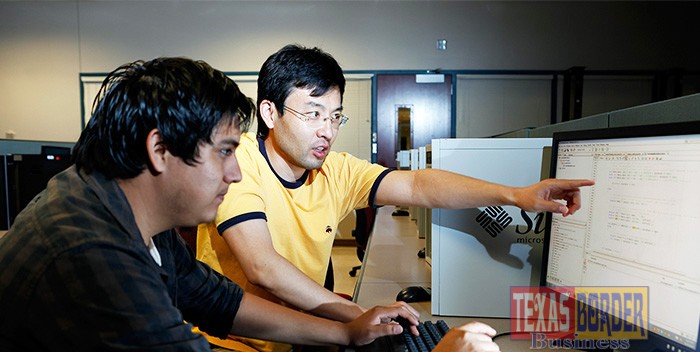
TEXAS BORDER BUSINESS
BROWNSVILLE, TEXAS – JUNE 26, 2014 – The University of Texas at Brownsville finished 19th out of 122 teams at the 38th Association for Computing Machinery – International Collegiate Programming Contest on Wednesday, June 25 at Ural Federal University in Ekaterinburg, Russia.
The university also placed second among 21 American and Canadian universities, finishing behind 13th place New York University and ahead of the likes of the University of Central Florida and the University of Southern California.
“This is great success to be second among all U.S. teams, including Stanford University, the Massachusetts Institute of Technology, the University of California, Berkeley, etc. that participated in the World Computer Science Competition,” said Dr. Mikhail Bouniaev, Dean of the College of Science, Mathematics and Technology. “We’ll celebrate this success when the team returns home.”
UTB was the only higher education institution in Texas taking part in the contest.
“Even though we didn’t get a medal, I feel that our team has done an outstanding job considering that we’re competing against some of the brightest minds around the world,” said Dr. Liyu Zhang, an Associate Professor in the School of Engineering and Computational Sciences in the College of Science, Mathematics and Technology. “It is also an incomparable experience for our students just to participate in such a unique event and meet all fellow students with similar interests and talents to boost their self-esteem, as well as provide career opportunities by the sponsoring entities.”
Ali-Amir Aldan, 20, a junior physics major from Almaty, Kazakhstan; Reynaldo Rea Jr., 21, a senior computer science major from Brownsville and Satzhan Sitmukhambetov, 21, a junior physics major from Karagandy, Kazakhstan completed against teams representing universities from Africa, Asia, Europe, Latin America, North America and South Pacific.
“All of them are brilliant people because it is really hard to get to the finals,” said Aldan. “They all come from different backgrounds. The competition is five hours long and people participate in it in teams of three. For the duration of the competition, the teams are given around 10 to 11 problems of mathematical nature that they need to implement in programming languages, like Java.”
Aldan prepared for the competition by participating in online competitions and solving problems on his own.
Rea practiced problem sets used during last year’s contest to prepare for this week. He said looked forward to flying to Russia.
“We have performed better than what we expected,” said Rea. “It is really a great experience.”
Team Ocelot placed first among 57 teams in the South Central USA regional finals for the ICPC in November 2013 at Baylor University in Waco. Their victory qualified them for the opportunity to compete in Russia. Teams from 2,286 universities in 94 nations competed in regional finals to determine who would go to the world finals.
“UTB’s team success at the ICPC regional finals is especially remarkable as the team was formed just one week before the competition and team members had very limited time to review and practice on relevant problems in preparation for the regional finals,” said Zhang.















